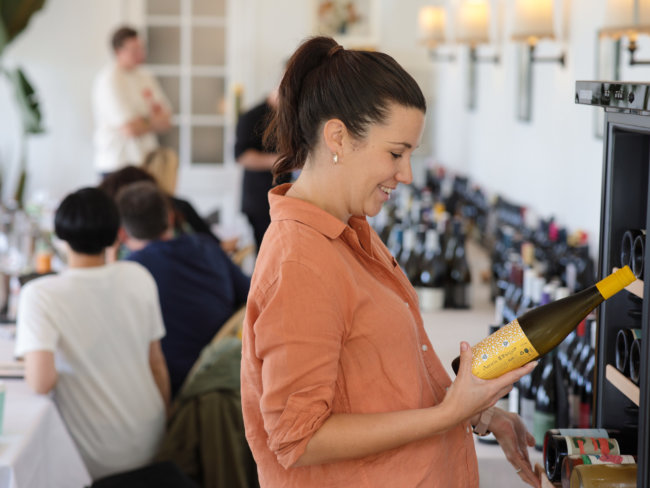10 July 2019. Words by Felix Riley.
It’s not so long ago that rosé was derided in this country, with the market dominated by luridly coloured and cloyingly sweet local offerings, and much more acceptable though far from serious Provence bottlings – more beverage than wine, bottled sun-soaked frivolity. And while the prosecution had plenty of corroborating evidence some time back, that case would falter against a very robust defence now. We asked importer and rosé aficionado Felix Riley about the current state of play and the future for rosé, both in his main sphere of operation in France, particularly Provence, as well as back home.
Sure, the drum’s been beaten on the pink stuff for a few years now, led by US demand and the glitzy aspirational marketing of brands such as Sacha Lichine’s Whispering Angel, but rosé is only just limbering up for a long run of worldwide favour. And unlike ‘Beaujolais Nouveau’ or ‘Marlborough sauvignon blanc’, this democratic style is one that virtually any winemaker or region with one black grape variety or more can jump on board.
Like Champagne as a stylistic benchmark, Provence will long remain the yardstick for rosé, though many other regions around the world have a proud history of rosé production and consumption. Australia has just about shaken off the electric pink, sugary rosé nightmares of old, with many makers now turning out excellent examples.
A philosophical consideration for local winemakers is to emulate the pale-pink, strawberries and cream saline-tinged Provence style, or to strike out in new directions. The former makes for some fabulous drinking around the typically temperate Australian lifestyle and diverse national menu, though the latter is where things can get really interesting.
Is there a definitive Australian style of rosé? The likes of Rockford Alicante Bouchet and Charles Melton ‘Rose of Virginia’ may once have raised their hands, and indeed maintain a place in our wine conscience, however the field is now wide open. Right now is the opportunity for thoughtful winemakers to work with Australia’s comparatively relaxed (read: dogma free) winemaking laws to carve out a brave new benchmark.
Where virtually all of Provence’s rosés are built on a foundation of Grenache, many other non-related varieties can make exciting rosé. Pinot noir, gamay, sangiovese and nebbiolo readily spring to mind. In the right hands, noble varieties like these are generally reliable, and the abundance of alternative varieties emerging in the likes of South Australia’s Riverland is a fascinating area to follow.
The field is also open for winemaking to enhance the styles, with many of these wines benefitting from lo-fi techniques and even careful oak regimens, from barrel fermenting to oak-aged portions to build texture.
One critical challenge with rosé is to separate in drinkers’ consciousness the link between pale colour and dryness. The historic link between sweet and electric-pink wines versus Provence’s pale and dry wines is no more than correlation – colour has zero bearing on residual sugar – and perhaps it falls to writers and sommeliers to educate better on this. Selling darker hued rosé is currently an immense challenge, which sees the neglect of some fantastic examples. Indeed, could this be something for the natural wine community to take a lead on, given the interventions around temperature control and oxygen management to facilitate that pale shade?
Rosé is a lifestyle wine beyond just about any other, and certainly one which fits in so well with Australia’s outdoorsy culture. Add to this its respectable buy-in making it a widely accessible style, as well as its quick-to market turnaround from vine to table, means that all sections of the industry ought to regard rosé as front and centre in importance.
About Felix Riley – Felix owns wine import and wholesale company Felixir, with a keen specialty in French rosé. Prior to this he worked some 13 years in wine retail, earned a BA in History and an MA in Communication Management under the misguided aspirations of a career in public relations, before finally cracking a relevant career qualification of WSET 3. Outside of wine, Felix enjoys cooking, tinkering with the guitar, and live music at the heavier end of the spectrum.





